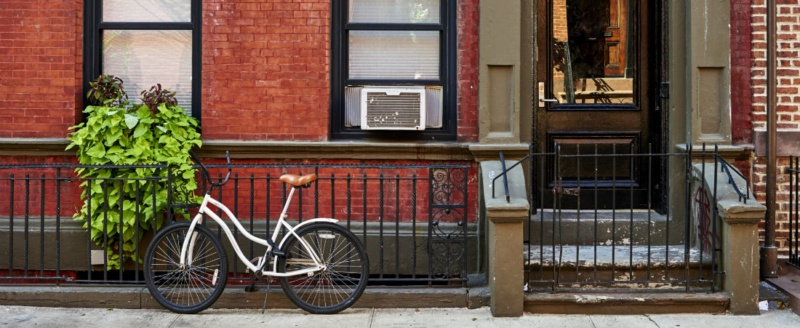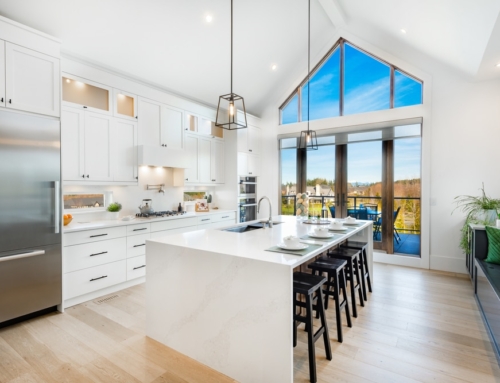Finding the right apartment to rent is tough enough. Renting an apartment on a budget is even tougher.
Between the application fees, moving fees and stress of finding the right apartment (in the right neighborhood and at the right price), the best thing you can do is carefully figure out how much you can afford to spend and then find the best value for your dollars.
Here are some tips to help rent an apartment on a budget that you can afford.
Tip #1: Know what you can afford to spend on rent each month
Your first step in an apartment search is to know exactly what your monthly budget allows you to spend on rent and utilities. The maximum rent you can afford should be your guideline when searching for apartments by price, since rental demand means landlords have little incentive to negotiate price.
The traditional advice is to limit your housing expenses to one-third of your take-home pay, but your goal should be to rent an apartment that costs well under this amount so that you can budget for that expense and save more efficiently.
Here’s a tip: During your search, you’ll see apartments with some (or possibly all) of the utilities included in the rent, while others might only include water and trash pick-up. When calculating the monthly rent for each apartment option, don’t forget to factor in these numbers. If two apartments have the same rent but one includes all utilities, the latter would be the better deal.
Tip #2: Set your priorities for your new apartment
Once you know your price, make a list of must-haves for your new apartment. This list should probably include the neighborhood, nearby access to public transit or the size of the space. Think through what you actually need versus what you can live without. Pet owners, for example, need a space that is pet-friendly, while most people can live without a dishwasher.
Remember: The more items you put on your “must-have” list, the more you limit your options and the harder it will be to land an apartment.
Tip #3: Start early and use every avenue (no pun intended) possible during your apartment search
If meeting your budget number is the issue, you’ll typically have the best luck if you cast the widest net.
So, start your search as early as possible, ideally several months ahead of time. This allows you to get a feel for the affordability of different neighborhoods while researching the local management companies so that you know what to expect when apartments open up for showings.
Remember: Use every apartment search tool at your disposal. Look through online directories, ask friends about openings in their buildings and walk through your preferred neighborhoods with your eye out for ‘For Rent’ signs. You never know which connection will lead you to your eventual apartment.
Tip #4: Budget for the application fees, moving costs, and first and last month’s rent
When you find the apartment of your dreams you don’t want anything to stand in your way, especially the application process. Rental apartment application fees typically run about $50, but you’ll need enough saved for several applications in case you’re rejected for an apartment.
Finding a new apartment isn’t cheap, especially when you include move-in fees, first and last month’s rent (or a security deposit) and paying for movers. Our Emergency Savings Calculator can help you plan for these costs and put enough money aside so that they don’t ruin your budget.
Try this: Check your credit score well before you apply so you know what the landlord or management company will see when they check your credit. If you think you’ll need the help of a co-signer, ask them ahead of time to avoid delaying your application.
Tip #5: Stick to your budget
Of course, you’re going to fall in love with rental apartments that are priced well above your budget. You’ll dream about how great it would be to live there. The only problem is, you can’t afford them.
So, stick to your budget. When viewing apartments, don’t be swayed by first-month-free or reduced-rent offers without doing the math first. And keep in mind what a more expensive apartment means for your budget. Would you rather be stressed about making your rent each month or have extra money to save, pay off debt (and maybe splurge on a new couch)?
Remember: You know what you can and cannot afford, so don’t be pressured into signing for an apartment that is outside of your price range.
And once you move in, continue to save for the future and pay off debt. You did the work to make your apartment fit your budget, so stick with your plan to maximize your finances.
Ilyce Glink is the Publisher of ThinkGlink.com and the Founder/CEO of Best Money Moves, a financial wellness app that helps employees measure and reduce financial stress.







Thanks for the tips for renting an apartment. I’m definitely on a budget right now, so this was really helpful. I’ll make sure to keep the first and last month’s rent in mind, because that has snuck up on my before.